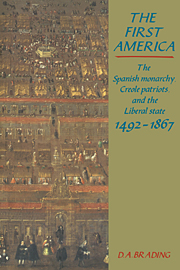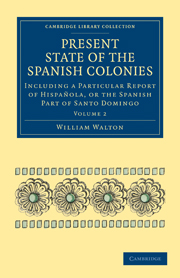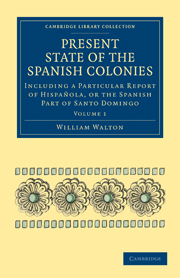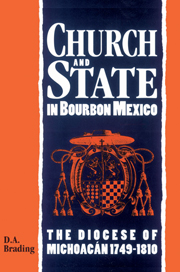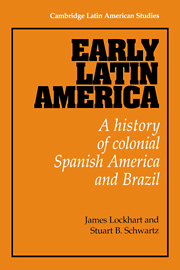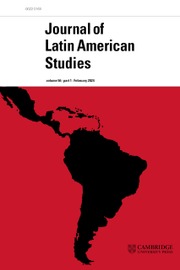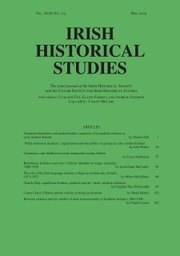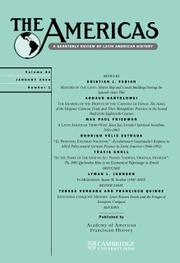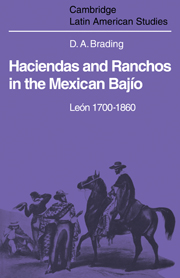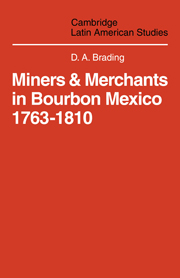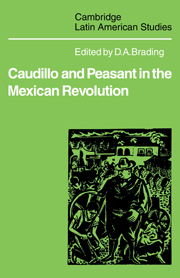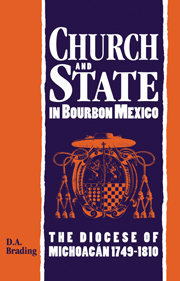The First America
The Spanish conquest of America generated a profusion of chronicles, tracts and poetry, among which are figured several classics of the Renaissance. It also provoked a fierce debate between Bartolome de las Casas, who defended the Indians, and the humanist historians who glorified the conquerors. Thereafter, imperial jurists and churchmen acclaimed the Spanish monarchy as chosen by Divine Providence to establish a Catholic empire in the New World. Within the bounds of this universal monarchy, American Spaniards sought to define their social identity by installing Aztec and Inca civilisation as the historical foundations of their countries and by accepting Our Lady of Guadalupe and St Rosa of Lima as their patrons. When the voice of the Enlightenment re-stated the imperial critique of the New World's inhabitants, Creole patriots vigorously responded; and if in South America Simon Bolivar cited classical republicanism to justify independence, in Mexico Creole patriotism was transmuted into an insurgent nationalism that did not succumb to liberal ideas until the incursion of the reform movement led by Benito Juarez. This book is about the quest of Spaniards born in the New World to define their American identity. It demonstrates that across the three centuries of colonial rule, Creole patriots succeeded in creating an intellectual and political tradition that by reason of its engagement with native history and American reality was idiosyncratic, regionally diverse, and distinct from any European model.
- This is the only work of its kind ie: the first systematic account in print of the three centuries of Spanish Imperial rule in America
- Has sold over 1000 copies in hardback at £55/$64.95, selling particularly well in America, where the paperback is eagerly awaited
- Will be of special interest to colonial scholars generally
Reviews & endorsements
'Such a short summary of a book elaborating over nearly 700 pages of finely printed text cannot hope to do it justice. Brading offers a study of impressive scope, rich content and suggestive argument, filled with incisive essays on all the major thinkers and commentators on colonial Spanish America … it is a major addition to the historiography of the Hispanic world and will undoubtedly become a standard work of reference for anybody interested in the foundations of Hispanic American intellectual life.' The Times Higher Education Supplement
'Brading offers a study of impressive scope, rich content and suggestive argument, … it is a major addition to the historiography of the Hispanic world and will undoubtedly become a standard work of reference.' The Times Higher Education Supplement
'Brading offers a study of impressive scope, rich content and suggestive argument, … it is a major addition to the historiography of the Hispanic world and will undoubtedly become a standard work of reference.' The Times Higher Education Supplement
Product details
September 1993Paperback
9780521447966
780 pages
228 × 149 × 36 mm
0.977kg
36 b/w illus.
Available
Table of Contents
- List of illustrations
- Preface
- Prologue
- Part I. Conquest and Empire:
- 1. A new world
- 2. Conquerors and chroniclers
- 3. The unarmed prophet
- 4. The great debate
- 5. Franciscan millenium
- 6. The proconsul
- 7. Andean pilgrim
- 8. Jesuit triumphs
- 9. History and myth
- 10. The Catholic monarchy
- 11. Tridentine prelate
- Part II. Strangers in Their Own Land:
- 12. Inca humanist
- 13. The Two Cities
- 14. Creole patriots
- 15. Annals of Ophir
- 16. Mexican phoenix
- 17. Western paradise
- 18. Peruvian eclipse
- 19. History and philosophy
- 20. Jesuit patriots
- Part III. Reconquest and Revolution:
- 21. The new state
- 22. Erastian church
- 23. Scientific traveller
- 24. The great rebellion
- 25. Liberals and patriots
- 26. Insurgent creole
- 27. Republican hero
- 28. Civilisation and barbarism
- 29. Mexican Leviathan
- Notes
- Bibliography
- Index.

